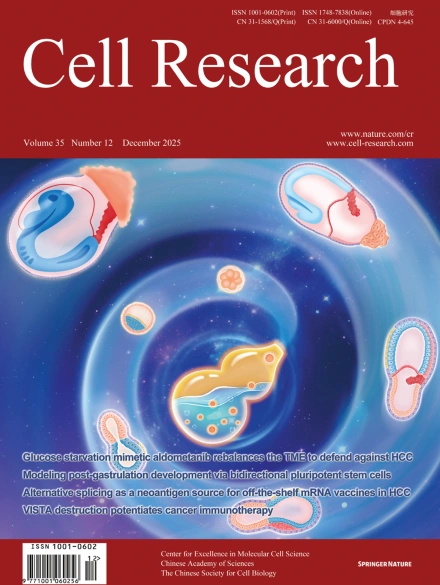
Advanced Search
Submit Manuscript
Advanced Search
Submit Manuscript
ISSN: 1001-0602
EISSN: 1748-7838
2020 impact factor 25.617*
(Clarivate Analytics, 2021)
About the cover
A novel cell culture system, represented by the gourd and liquid, enabled generation of BPSCs with greater developmental potential. Nourished by the precious fluids, BPSCs gave rise to early mouse embryos. See page 954–969 by Kuisheng Liu et al. for details.
RESEARCH HIGHLIGHTS
Branched-chain fatty acids fire up the peroxisomeEDITORIAL
Sanofi-Cell Research outstanding paper award of 2024RESEARCH HIGHLIGHTS
KCNQ1 and PIP2: it takes two to tangoORIGINAL ARTICLES
Glucose starvation mimetic aldometanib removes immune barriers permitting mice with hepatocellular carcinoma to live to normal agesLETTERS TO THE EDITOR
Nearly complete redirection of insertion-type indel into recombination enhances knock-in and facilitates endogenous biomolecular condensate analysis